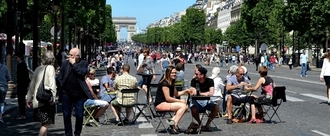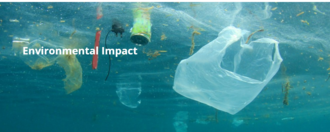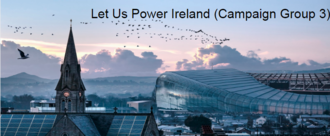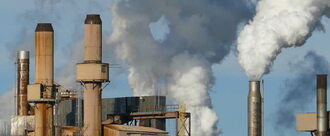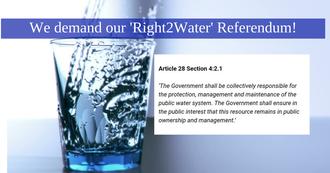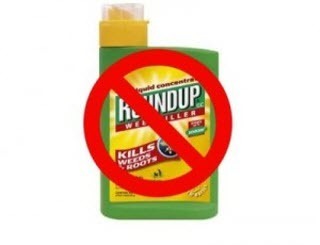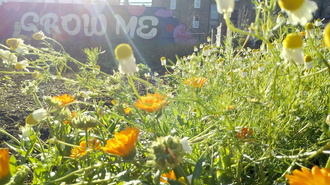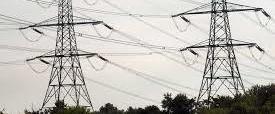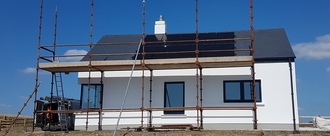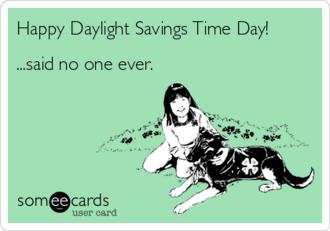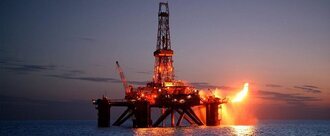- Featured
- Animal Rights
- Anti-racism
- Arts & Culture
- Children
- Climate
- Corporate accountability
- Crime
- Disability rights
- Economic
- Education
- Environment
- Food and Sustainable Production
- Gender Equality
- Governance and Transparency
- Health
- Housing
- LGBT Rights
- Mental health
- Northern Ireland
- Planning
- Privacy and Data Protection
- Rural Inequality
- Social Justice
- Trade
- Transport and Infrastructure
- Workers' Rights
- More
-
Car-Free Sundays in Dublin City CentreWe want people to be able to enjoy Dublin City Centre without the hustle and bustle of motor vehicles. By creating just a few car-free streets every Sunday we could enable people of all ages and abilities to walk, cycle and enjoy themselves in the heart of Dublin City. Car-Free Sundays have been trialled successfully in cities around the globe including Paris, Mexico and Singapore. The 'Paris Sans Voitures' (Paris Without Cars) initiative was started by the city's Mayor to tackle chronic air pollution. The first car-free day in Paris resulted in a 40% drop in air pollution and a 50% fall in noise pollution. Each year in Ireland, up to 1,600 premature deaths are linked to air pollution, with motor vehicle emissions making up a substantial proportion of that pollution. The Car-Free Sunday concept can also be combined with free public transport for the day to encourage people to leave their cars at home. A large-scale switch to public transport, or to cycling and walking, could ease congestion in Dublin and improve the city for everyone. We are calling on Dublin City Council to realise the potential of Car-Free Sundays and to begin trials of the concept in the summer of 2018.2,209 of 3,000 SignaturesCreated by Dublin Cycling

-
Bio-Degradable Pastics1. Less waste to Land Fill, 2. One off use of Non Bio-degradable Plastics finding its way to our Rivers, Seas Lakes, Oceans. 3. Less Plastic waste in Rivers, Lakes, Seas, Oceans. 4. Save energy in the Production and Disposal of one of use,of Non Bio-degrade Waste Plastic. We need to re-think our views on Plastic. Many Plastics are used in our Work Places and Homes. Film " A Plastic Ocean"25 of 100 SignaturesCreated by Brian Gould
-
Let Us Power IrelandIreland is far too dependent on fossil fuels, and is not on target to meet it's Paris Climate agreements. It is vital that this be part of the clean energy portfolio as soon as possible. (Clarification and lots of facts here...)11 of 100 SignaturesCreated by Marion Briggs
-
No to Shannon LNG terminalSince 2008, Shannon LNG have held planning permission to build a liquefied natural gas (LNG) terminal in northern Kerry. The terminal was never built, but now the company are looking to get an extension of the planning permission. We are calling on An Bord Pleanála to deny that extension, because LNG is not the right step for Ireland’s future. Liquefied natural gas is fossil gas which has been turned into a liquid so that it may be transported. It is highly flammable and very dangerous to the local environment [i]. The coastal area surrounding the proposed site for the LNG terminal is a Special Protected Area with a large population of waterbirds [ii]. An LNG terminal would be a huge threat to the biodiversity of this beautiful area. The LNG processed at this terminal will most likely be fracked gas imported from other countries, such as the US. Ireland banned fracking because of the devastating impact it holds for both people and wildlife [iii]. We cannot now profit from the exploitation of other communities at the hands of the fracking industry. Importing LNG and increasing our dependence on fossil gas is the wrong direction for Ireland. The planned Shannon LNG terminal would import twice as much gas as we currently use [iv]. If we want to prevent catastrophic global warming, we need to transition away from fossil fuels now. Europe can only afford to burn gas at current levels for 9 more years [v]. If we build LNG terminals with a life span of 30 years or more, it will be very difficult to ensure the necessary transition to renewable energies. We need to take a stand and say no to investment in new forms of fossil fuel infrastructure, and focus on creating a safe and sustainable future for all. ------------------------------------------------------------------------------------------------------------------------------------------------------- [i] Associated Press in Plymouth, Washington. ‘Five workers hurt after natural gas plant explosion in Washington state’. The Guardian. 1 April 2014. [https://www.theguardian.com/world/2014/apr/01/five-injured-natural-gas-plant-explosion-washington]. [ii] National Parks and Wildlife Service, [https://www.npws.ie/protected-sites/spa/004077] . [iii] The Irish Times, ‘Ireland joins France, Germany and Bulgaria in banning fracking’ [https://www.irishtimes.com/news/politics/oireachtas/ireland-joins-france-germany-and-bulgaria-in-banning-fracking-1.3137095]. [iv] European Commission. Projects of Common Interest. PCI 5.3 – Shannon LNG Terminal and connecting pipeline. [http://www.lngworldshipping.com/news/view,northwest-europe-ponders-new-deepsea-lngimport-capacity_47036.htm https://ec.europa.eu/energy/sites/ener/files/documents/pci_5_3_en_2015.pdf] [v] Kevin Anderson and John Broderick, Natural Gas and Climate Change (2017).2,902 of 3,000 SignaturesCreated by Not Here Not Anywhere
-
We demand our Right2Water Referendum.We want the people's voice to be heard respecting water and sanitation services in Ireland, and a referendum be held. Across the globe ordinary people have undergone tremendous hardship and suffering when water services are privatised. Water is a human right and must never be under the control of 'for profit' companies. Publicly owned, funded and managed water and sanitation services, free at the point of use, is the only way to guarantee access for all.775 of 800 SignaturesCreated by Noreen Murphy
-
Ban now the use of Glyphosate based and all other toxic weedkillers by Sligo County CouncilTo ensure a safer, cleaner living environment for our current and future generations we want a complete ban of glyphosate weedkiller. We are extremely concerned that our Agricultural sector/farmers are bombarded with misinformation and pressure from government bodies that are directly lobbied by toxic chemical companies. We are also calling on the county council to use alternative organic based methods for all weed control. We are aware of the seriousness of the invasive species 'Japanese Knotweed', but studies have concluded that the long term use of glyphosate weedkillers does not actually kill Japanese knotweed. By using organic means to kill this highly invasive species it is proven to be eradicated in the exactly the same time frame. With the projected construction of Irelands first Soil Recovery centre in the Midlands, it has been stipulated that it won't accept any plant or soil material that's contaminated with any chemicals. It makes no sense to use contractors who have no regard for anything but chemical control, which also includes chemicals such as Garlon Ultra and Speed lite Pro which do not have a base glyphosate ingredient. These weedkillers have two other active ingredients (1.) Amino Pyralide (2.) Triclopyr. These active ingredients are incredibly toxic and will leach into the soil and groundwater. They, like RoundUp, do not ever break down and our filtration systems are unable to remove these deadly chemical time bombs. These chemical-based weedkillers are highly carcinogenic and linked to a variety of potentially fatal diseases. Monsanto's Roundup weedkiller, Pathclear, Gallup, Pistol, Weedol and Mossgo are to name but a few of the weedkillers currently on the market that contain the cancer-causing chemical glyphosate which is lethal to all living organisms. Ireland has the second highest level of glyphosate in our surface water in the EU and the third highest death rate of cancer in Europe. 1. https://www.irishtimes.com/news/environment/farmers-weapons-of-mass-destruction-carry-cancer-fears-1.3148492 2. http://greennews.ie/why-is-ireland-diluting-legislation-on-banning-hormone-changing-chemicals/ 3. https://www.euractiv.com/section/agriculture-food/news/france-tables-eu-wide-non-agricultural-pesticide-ban/700 of 800 SignaturesCreated by Meg Rybicki
-
Unchain Our GardenIn December 2017, with the lead up to Christmas, Tony Lowth and the Gardeners arrived one day to find that the Garden gate had been arbitrarily chained up to prevent us access to a space that we diligently maintain. This act was done with zero forewarning, communication, and ultimately any level of human respect or considerations toward the Caretakers of the Garden. This lack of communication, empathy, and essentially acts of adult bullying, hit Tony particularly hard over Christmas - where he became ill with Shingles from the stress of the situation. The slogan of our Community Garden is "Grow Me" to highlight the concept of "no-dig organic gardening" and "growing" positive social economy - by specifically focusing on soil and compost production, by using local waste around Dublin to "grow" new soil. We source our "soil food" through local businesses which helps them to reduce unnecessary bulk waste; minimizing city rubbish collection output. For instance, we collect coffee grinds from local businesses, leaves and grass cuttings from parks and streets, wood chip and other material from local stables, etc. The Garden essentially acts as a hub for this "waste" by transforming it into incredibly fertile soil - which needs to be maintained daily through physical labour to optimize its effectiveness. Tony Lowth, the founder of the Garden space, has been a pillar to the community by transforming a once neglected space FULL with cans and rubbish, into an amazing plot of green. This space is now home to an array of organic vegetables, herbs, flowers, trees, wildlife, and to the people that pass through. Speaking as a Volunteer Gardener, this space has offered me an opportunity to learn planting and composting wisdom directly from Tony which has been invaluable to me. I have further benefited from being in nature which has been extremely beneficial to my well-being and mental health. And the Garden has allowed me to feel a connection to a community which has inspired me on so many other levels. Going to the garden twice a week was the best part of my week. The purpose and benefit of a Community style Garden, is that it weaves all walks of life together to express, inspire, grow, learn, and connect in an open space. These are all concepts that a school - or any form of creative institution, should be promoting at grassroots level, not ostracizing with a lock.443 of 500 SignaturesCreated by Amanda McKnight
-
Place Pylons UndergroundEirgrid has an important job to ensure our energy needs are met. However this can not be at any cost. The only issue of placing lines underground for Eirgrid is an increase in cost. Surely protecting our beautiful country is worth the increase in cost. It is also important to protect important landmarks, such as the Hill of Tara, which is seeking UNESCO status. It is time to start looking to the future and build the Interconnector and other national projects underground where they will be safe from storms, and keep our country beautiful for the next generations (and tourists).510 of 600 SignaturesCreated by Daniel James
-
Rooftop Solar for our homes, farms, SMEs & community buildings!If the incentives are directed towards the large energy utility companies including the ESB, Board Gas, Coilte, Board Na Mona etc and large private companies funded by venture capitalists they will build large scale solar parks mainly in the South and South East of Ireland. This would be good news for Ireland for efforts to meet our 2020 C02 obligations and a renewable future. But there will be no benefits for the majority of the population of Ireland. We will continue to pay the second highest electricity prices in the EU. A grant and a feed in tariff and possibly a generation tariff for the installation of Solar PV on houses, farm buildings and all types of commercial buildings could reduce the annual electricity bills by up to 50% and contribute towards a large reduction on Ireland's dependency on imported fuel bill of €6 billion per year.15 of 100 SignaturesCreated by Barry Sharkey
-
Abolish Daylight Saving Time in IrelandPast decades DST has become more of a hindrance than help as the way we work has changed with ubiquity of electric lighting, not to mention the Internet. The benefits it may have brought a century ago are no longer relevant. Although it is quite common elsewhere in the world, Poland is the first EU country to start doing away with the DST nonsense (starting 2018). Let's follow this example and help the rest of EU out of DST. Good (and hilarious!) commentary on DST by Last Week Tonight: https://www.youtube.com/watch?v=br0NW9ufUUw The number of people impacted by DST all at once leads to some surprising associations, including a spike in heart attacks, increased numbers of work injuries, automobile accidents, suicides, and more in the days following. Sources: [ http://philadelphia.cbslocal.com/2013/03/09/daylight-saving-time-could-have-an-impact-on-your-health/ ] [ http://psycnet.apa.org/journals/apl/94/5/1305/ ] [ http://www.sciencedirect.com/science/article/pii/S0001457503000150 ] [ http://onlinelibrary.wiley.com/doi/10.1111/j.1479-8425.2007.00331.x/abstract ] The psychological impact is not everything. The banking, transportation, people working nights are all adversely impacted. It can stop right now.42 of 100 SignaturesCreated by Michael Laskowski

-
Legislate now to Ban Oil and Gas Drilling off Irish CoastPetition Update December 2020: In mid-December, we are going to deliver this petition and letters signed by both civil society groups from across the globe and members of the Houses of the Oireachtas urging Minister Eamon Ryan to support the granting of a money message from the Government so the Climate Emergency Bill can progress to committee stage as soon as possible. Petition Update September 2020: Not Here Not Anywhere has been campaigning to ban offshore drilling since 2017, and in that time we have seen progress and changes in government policy. In the 2020 Programme for Government agreed by Fianna Fail, Fine Gael, and Greens stated the following on oil and gas drilling "End the issue of new licenses for the exploration and extraction of gas, on the same basis as the recent decision concerning oil exploration and extraction" [1]. Now that Eamon Ryan is the Minister for Climate Action, he has the power to legislate and ban offshore oil and gas drilling outright. Recently, we submitted a Parliamentary question to find out when the legislation when going to be enacted. We got the below response from Minister Ryan "While there is no requirement for legislative underpinning, I and my Department will evaluate whether any further actions would be useful in terms of providing maximum clarity." [2]. We disagree with the Minister’s assessment, if the current government falls with no legislation passed it could lead to future licenses been issued under a new administration. Also, if legislation was passed it would be a major victory for the climate movement both in Ireland and globally and we would be joining other countries around the world which have shown this climate leadership [3]. We need to shed our climate laggard status, legislate to ban offshore oil and gas drilling, and KEEP IT IN THE GROUND. Original petition: On 11th July, just one week after onshore fracking was banned in Ireland, Minister of Communications, Climate Action and Environment, Denis Naughten, granted consent to oil & gas drilling by Providence Resources PLC in the Porcupine Basin off our south-west coast [4]. They expect to find 5 billion barrels of oil [5]. In an Orwellian twist, a “Department of Climate Action” has allowed for the burning of 5 billion barrels of oil when international climate experts state that 80% of the known fossil fuels have to stay in the ground if we want to avoid going over the safe 2 degrees limit of global warming [6]. Any investment in fossil fuel industry and infrastructure will result in what is known as “carbon lock-in”, taking us on a one-way unstoppable trip to dangerous levels of global warming that threaten global health and eco-systems [7]. Oil and gas exploration is also deadly for Ireland’s unique dolphin, whale and porpoise population [8] and plankton, the basis of the marine ecosystem [9]. Yet, Minister Naughten has refused to confirm if drilling will stop if a threat to the population is found [10]. We call on Minister Naughten to retract the Providence Resources permit immediately. Furthermore, we call on the Minister to follow the lead of France [11] and ban all new oil and gas exploration in Irish waters. We need to halt all dead investments in the fossil fuel industry and prepare a just transition to an economy that can provide workers with real, sustainable long-term jobs that can provide for their families and their future [12]. ------------------------------------------------------------------------------------------------------------------------------------ [1]https://www.greenparty.ie/wp-content/uploads/2020/06/2020-06-15-ProgrammeforGovernment_Corrected-Final-Version.pdf [2]https://www.oireachtas.ie/en/debates/question/2020-09-15/162/#pq_162 [3]https://www.looptt.com/content/new-zealand-next-list-ban-offshore-drilling [4] http://www.independent.ie/business/world/providence-resources-commences-drilling-off-the-southwest-coast-of-ireland-35921724.html [5] http://www.proactiveinvestors.co.uk/companies/amp/news/180745 [6] http://www.carbontracker.org/wp-content/uploads/2014/09/Unburnable-Carbon-Full-rev2-1.pdf [7]http://priceofoil.org/2016/09/22/the-skys-limit-report/ [8] http://news.nationalgeographic.com/news/energy/2014/02/140228-atlantic-seismic-whales-mammals/ [9] https://www.theverge.com/2017/6/23/15861932/offshore-drilling-airgun-seismic-surveys-zooplankton-death-oceans [10] https://www.kildarestreet.com/debates/?id=2017-02-07a.382 [11]http://www.independent.co.uk/news/world/europe/france-ban-new-oil-gas-exploration-stop-granting-licences-macron-hulot-renewable-energy-drive-a7806161.html [12] http://www.impact.ie/climate-change-workers-communities-must-protected-just-transition-carbon-free-economy-says-impact/7,361 of 8,000 SignaturesCreated by Not Here Not Anywhere - NHNA

-
Petition to persuade Bernie Sanders to give public speech in Dublin on June 4th/5thBernie is giving a speech on June 4th which sold out after 1 minute. There are thousands of people who are willing to pay to hear him speak, to hear a voice for the people. Someone who stands up for the environment, all people and the planet as a whole. My hope is that hearing Bernie speak could spark the revolution that is needed in Ireland so we can transform our country and go back to the values it was founded on.221 of 300 SignaturesCreated by Cormac Nugent

